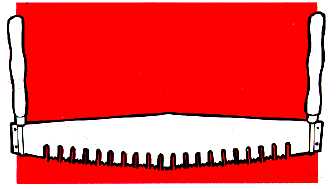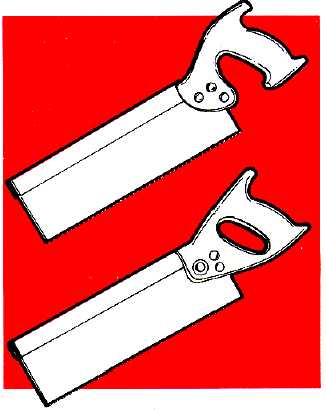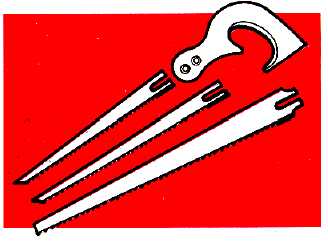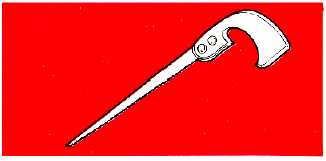TM 9-243
TYPES AND USES - Continued
TWO-MAN CROSSCUT SAW
The two-man crosscut saw is 5 to 6-1/2 feet long with a
handle at each end. As with the one-man crosscut saw,
it also has a high-grade steel blade with the "cutter" and
"raker" teeth arrangement. It is used when two men are
required for extra heavy cutting jobs.
BACKSAW
The backsaw has a straight blade and parallel top and
bottom, with a heavy strip of steel or brass wrapped
along the back to provide rigidity. The handle is of
similar
shape to other hand saws except it is usually mounted
higher. Backsaws are used for general bench work such
as cutting joints and smaller sections of lumber to
length. Sizes vary depending on design and nature of
work.
NESTED SAWS
Nested saws consist of a wooden handle to which
several different blades can be attached, making up
different types of saws such as the keyhole or compass
saw. A slotted end at the heel of each blade slips into
the pistol-grip type handle where a wingnut fastens it in
place. Nested saws are used to cut along curved lines,
to start cuts for larger saws, or to make starting saw cuts
from drilled holes or small openings. The size of these
saws will vary depending on design and nature of use.
KEYHOLE SAW
The keyhole saw is the smallest type of nested saw. Its
blade has a very narrow point small enough to enter a
1/4-inch hole. It is used for close-quarter work, such as
cutting, shaping, or enlarging holes in a board.
46-3








